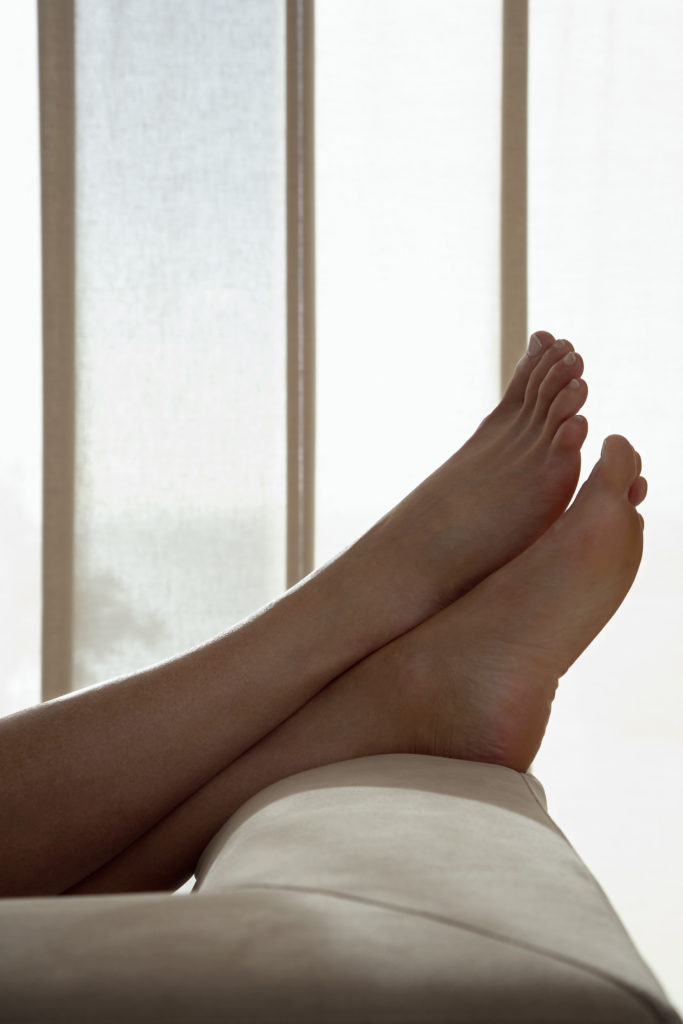Different parts of your body are often great diagnostic tools that can help predict or indicate various health problems. This includes your eyes, your skin, your tongue, and even your feet. Many people tend to disregard problems with their feet unless it becomes too serious for them to handle. Your feet can actually give out clues that can potentially say a lot about the current state of your health. For instance, certain indicators on your feet can be linked to something simple like nutritional deficiencies, or something as serious as diabetes. Unresolved foot problems can lead to a variety of unexpected consequences so you may want to check your feet for telltale signs and symptoms that may warrant a visit to the doctor. Here are seven things your feet say about your health.
- Sunken toenails with spoon-shaped indentations
If you notice that your toes’ nail beds are exhibiting an unnatural, concave or spoon-like shape, it might indicate that you have anemia or iron deficiency. This means that there’s not enough haemoglobin, or iron-rich proteins, in your vascular system to efficiently transport oxygen. Other indicators of anemia include pale nail beds on fingers and toes and brittle nails. Having a complete blood count can diagnose whether or not you have anemia.
- Dry, flaky heel
Having a dry, cracked, flaky skin around your heel or on the ball of your foot may be a warning sign of a thyroid condition. Since the thyroid gland is responsible for producing various hormones that control a variety of aspects in your body, a dry, flaky heel may indicate that there’s something wrong with your thyroid. Of course, dry skin may be a result of something much less serious such as a change in weather. However, if the dry skin on your foot is coupled with weight gain, vision problems, or numbness in your extremities, consult a doctor.
- Hairless feet and toes
Sudden baldness of your feet and toes can indicate poor circulation since it would mean that your feet are not getting an adequate blood supply to sustain hair growth. Although having hairless feet may be ideal for some, it might indicate something more serious such as an underlying vascular disease so it’s better to have yourself checked.
- Frequent foot cramps or charley horses
It is not unusual to get foot cramps caused by the hard contraction of a muscle on your feet especially after working out. However, if you experience these cramps too often without a particular reason, it could indicate several nutrient deficiencies including magnesium, calcium, or potassium. Pregnant women are especially more vulnerable because of their increased blood volume and reduced circulation to the feet.
- Frequent foot numbness
Everyone experiences having numb feet once in a while especially if you sat in one position for too long but if it happens regularly for no apparent reason even while you’re active, it could indicate a variety of diseases. For one, it could be caused by peripheral arterial disease or PAD, caused by plaque build-up in the arteries on your lower extremities. It can also indicate type 2 diabetes especially if wounds on your feet take an extremely long time to heal.
- Cold feet
If your feet literally feel cold then it might indicate hypothyroidism. This occurs more commonly among adults above 40 years old when the thyroid starts working sluggishly without your knowing. Cold feet that just don’t get warm is the earliest sign but later symptoms of hypothyroidism include hair loss, weight gain, fatigue, and depression.
- Sores that just won’t heal
Sores on your feet that simply doesn’t seem to go away is a telltale sign of diabetes. When friction or pressure on your feet causes minor scrapes or cuts, having diabetes will prevent these cuts from healing and may even worsen them since the elevated blood glucose levels cause nerve damage in the feet. Consult a doctor to get the sores treated and have yourself checked for diabetes.









